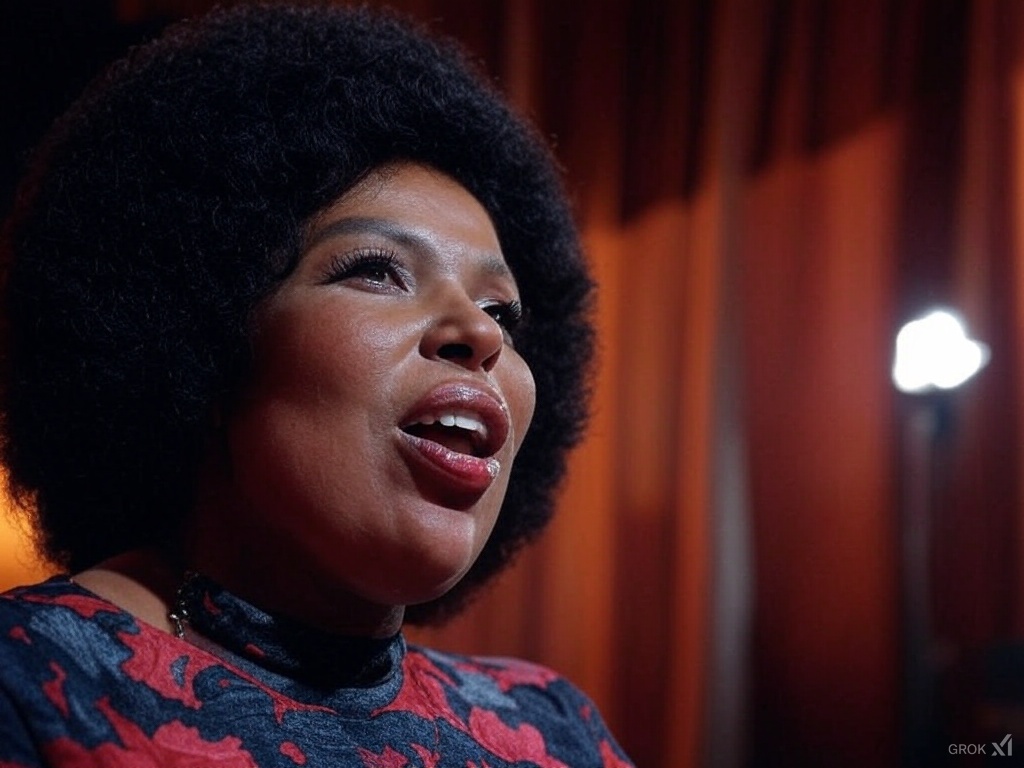Roberta Slack: Leaving Us Softly

25 February 2025
Roberta Flack, the soul-stirring singer whose voice shaped decades of music with hits like “Killing Me Softly” and “The First Time Ever I Saw Your Face” has passed away at 88 leaving a legacy that defied easy categorization, blending soul, jazz, and folk into something timeless.
Years ago, a friend handed me a worn vinyl of Roberta Flack’s debut album, First Take, with a quiet insistence that I listen closely. That record spun on my turntable late into the night, and her voice crept into the room like a secret shared between old confidants. What struck me then, and lingers now, lies in how she sang as if she knew you—not just your joys, but the tender ache of your hidden sorrows too. Her music carried a rare intimacy, a quality that made you feel seen, as though she’d penned each lyric after peering into your life. Hearing of her passing stirs that memory, pulling me back to the grooves of that LP, where her singular magic first took root.
Born in North Carolina, Roberta grew up surrounded by music—church hymns, her mother’s piano, the hum of a community that valued song as much as breath. She carried that foundation to Howard University, honing her craft among peers who recognized her gift early. By the time First Take dropped in 1969, recorded in a swift ten hours, she’d already distilled a sound that felt both ancient and startlingly fresh. Tracks like Leonard Cohen’s “Suzanne” or Ewan MacColl’s “The First Time Ever I Saw Your Face” emerged transformed under her touch, her voice wrapping around each word with a warmth that turned poetry into something you could hold. That debut revealed a bandleader’s vision too, her arrangements precise yet loose enough to let emotion spill over the edges.
Her rise came steady and sure. The 1970s bloomed with her presence—Killing Me Softly in 1973 soared to the top of charts, its narrative of a song catching a singer’s soul resonating with anyone who’d ever been moved by art. Donny Hathaway joined her for duets that ached with harmony, their voices entwined in a dance of mutual understanding. “Where Is the Love” and “The Closer I Get to You” stand as testaments to a partnership that felt like a conversation between kindred spirits. Roberta’s ability to shift between genres, threading jazz phrasing into soulful ballads or letting folk simplicity shine, kept her music unpredictable yet familiar, a friend who always had something new to say.
What set her apart, though, went beyond technical skill or chart success. Roberta sang with a quiet power, a depth that didn’t shout yet demanded you listen. Critics like Julius Lester, writing for Rolling Stone, marveled at her capacity to dive inside a song, pulling responses from corners of your heart you hadn’t explored. Her take on “Feel Like Makin’ Love” in 1974 layered seduction with vulnerability, proving she could wield softness as a strength. Each performance felt personal, a gift offered without pretense, and that authenticity drew fans across generations. She didn’t chase trends—she crafted moments, and the world leaned in to hear them.
Health challenges shadowed her later years, a stroke in 2016 and ALS diminishing her physical voice. Yet her spirit stayed loud, her influence rippling through artists who cite her as muse. Beyoncé sampled her, Lauryn Hill echoed her cadences, and countless singers chased that blend of grace and grit she mastered. Friends in the industry—Quincy Jones among them—spoke of her as a collaborator who elevated every project, her laughter filling studios as readily as her melodies did. Losing her now feels like misplacing a compass, a guide whose notes pointed to what mattered most.
Reflecting on her catalog, you hear a woman who understood love’s sprawling map—its peaks of joy, its valleys of longing. Songs like “Will You Still Love Me Tomorrow” carried a question mark she answered with every breath, offering reassurance without sugarcoating the stakes. She didn’t shy from complexity, her voice a bridge between the raw and the refined. Fans on platforms like X mourn her with tributes, recalling how First Take or “Killing Me Softly” marked their lives, a soundtrack to first loves or late-night reckonings. Her music lives there, in those shared echoes, a thread connecting strangers through time.
Roberta Flack’s departure leaves a silence that hums with her legacy. She gave us songs that didn’t just play—they lingered, curling into the corners of our days. That old vinyl still sits on my shelf, a little more scratched now, a reminder of nights spent with her voice as company. Her passing doesn’t dim that sound. Instead, it amplifies a truth she always sang: some voices don’t fade—they settle into the bones of the world, steady and sure, waiting for us to listen again.
